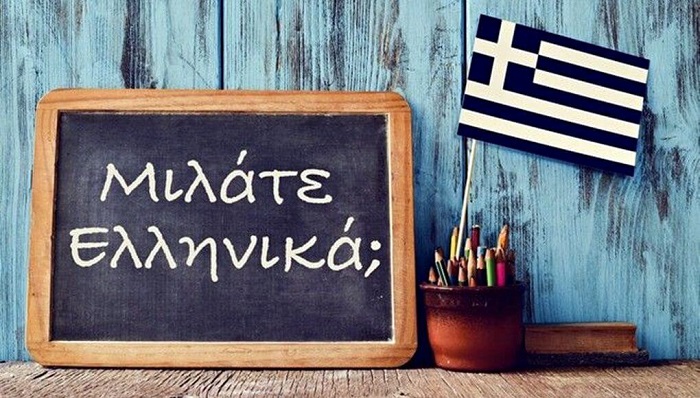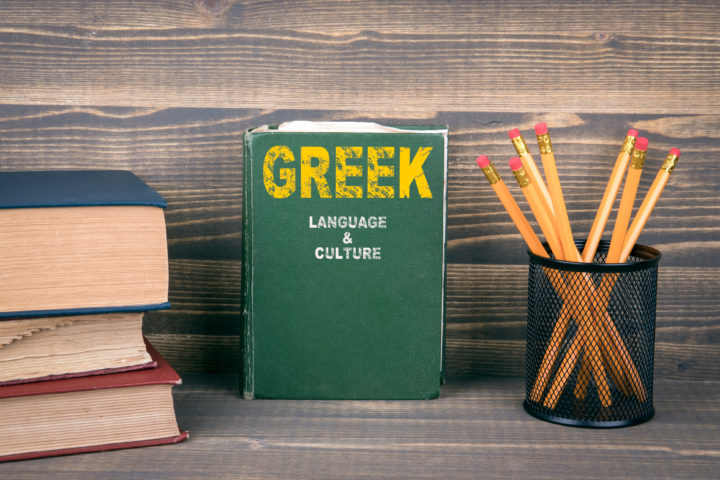By Anastasios M. Tamis*
In the previous article, I had claimed that the significance of Greek for Australia derives principally from heritage, moral, intellectual, academic, linguistic, and utilitarian reasons. In addition to those significant incentives making Greek a most significant language, I can also include the following:
(a) Approximately, 28,000 English words including key words such as idea, theory, system, analysis, synthesis, category, hierarchy, method, hypothesis, myth, poetry, drama, music, harmony, politics, democracy, thence, machine, episteme, psyche, Eros, ecclesia, Christ, Europe, theology etc are all words of the Greek language, this great little language to paraphrase the Noble laureate Greek poet Odysseus Elytis.
(b) It would be a cultural deficit for Australia if Greek is to be confined within its current spectrum and not be accessible nationally, in terms of universal education and culture. Especially, as the Greek language came to be not the exclusive property of the Greeks only, but of the entire humanity.
(c) Every national language constitutes the identity and the physiognomy of that nation. In the case of Greek, the language transmits and creatively enriches all modern western languages as it remains the robust source for new words and concepts for these national languages. To fully understand the meaning and culture of 28,000 English words of Greek origin, it is necessary to know and study the Greek language and culture; otherwise it would be a Herculean task to understand the meaning of polis, police, politics, democracy, tyranny, tyrant, oligarchy, aristocracy just to mention some words from the field of politics. Whence, the acquisition of Greek is further enhancing the better understanding of English.

(d) Greek as a Heritage Language, besides of aspects of use and utility, possesses another aspect, the moral one. Hence, the learning of Greek, apart from professional improvement in terms of income or social prestige etc., can provide a better, more direct, profound and essential understanding of the people who speak it, who exist immersed in it.
(e) The significance of Greek for Australia’s external trade resides both in the actual and potential links with the European Union via Greece and Cyprus and via connections between Greece, Cyprus and the Greek-Australian community and in the fact that, among others, the Greek merchant marine transports the largest quantity of Australia exports across the globe.
(f) As a result of the National Policy of Languages (1987), Greek was categorized as a “Language of Wider Teaching” and was protected as a second language by the Commonwealth and State Governments among eight other languages for teaching purposes. In September 1991, the Commonwealth of Australia identified 14 “priority languages” including Greek. Under the Commonwealth’s Priority Languages Incentives Scheme educations systems, the State and Territories selected eight languages each as the basis of funding support they received from the Commonwealth. Again, Greek was defined “Priority Language” in South Australia, NSW, New South Wales and Northern Territory, as well as a Tertiary Entrance Language subject in all states and Territories, attracting approximately 41,000 students, of whom 32% were of non-Greek-background (Tamis, 2001 and 2008, 2010).

(i) The Greek and Cypriot Australian communities remain generous in their support of Greek language teaching at all three levels of education, endowing schools and tertiary institutions with bequests and financially priming for the establishment of Greek teaching and lectureships.
(j) Greece is arguably the only home country of Australian citizens that contributes so generously and supports multifaceted types and schemes of language learning and teaching.
The aforementioned specifics build the notion that it is imperative for the Commonwealth Government, in full alignment with its national policy on languages since 1987, to continue to consider Greek as a priority language within is new National Curriculum Policy on languages, given its role and paramount importance:
- As a world heritage language;
- As a source language for other world languages;
- As a morally ideological as well as linguistically practical cornerstone for Australia;
- For its communal and inter-communal role in Australia as a wider spoken, taught and learned language not only by students of Greek ancestry but also by non-Greek-background students (32%).
- For its international economic role for Australia, since Greek is an official language of the European Union.
- As the Australian language which is heavily and supported in an unparallel fashion by the home country for the educational welfare of Australian citizens.
*Professor Anastasios M. Tamis taught at Universities in Australia and abroad, was the creator and founding director of the Dardalis Archives of the Hellenic Diaspora and is currently the President of the Australian Institute of Macedonian Studies (AIMS).


